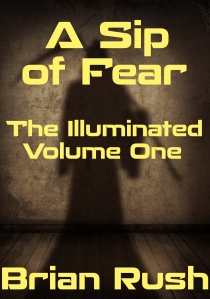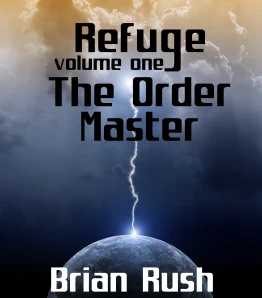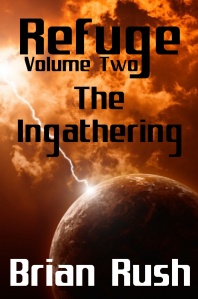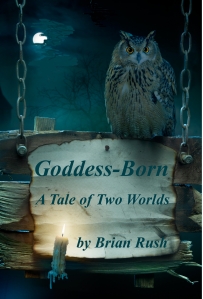Why Write Fantasy?
I write fantasy because I read fantasy. In fact, I think one can make that a universal rule: any type of fiction you write should also be what you like to read. If you don’t like to read it, you won’t understand it and you won’t write it well, at least not if you’re trying to write it. (If you end up writing in a genre by accident, that’s different; in that case you’re already halfway to creating a crossover story. But one cannot deliberately set out to accidentally write a particular type of story; that’s oxymoronic.)
The question then is not why one would want to write fantasy but rather why one would want to read it. Answer that question and the other answers itself.
This brings up the question of what we expect from a story, something that varies from reader to reader except in the most general terms. And that in turn brings up the observation that literary genres fall into two categories relating to how they are defined. Some are defined in terms of what kind of plot devices or story elements are present (fantasy, mystery, science fiction, romance, westerns). Others, however, are defined in terms of the feelings they arouse in us (thrillers, horror, romance, erotica). (Yes, I put romance in both categories. It belongs in both, because it’s defined both by story elements and by prevailing emotional tone.) There can be quite a bit of crossover between these two sorts of classifications. The fantasy horror story is a perfect example; actually most horror is also fantasy although not all (and the converse, that most fantasy is horror, is absolutely not the case). The techno-thriller is a cross of the thriller and science fiction. A fantasy thriller is also quite possible. So is a fantasy romance, or a western horror story, or a mystery thriller, or – well, you get the idea.
If a fantasy story is also say, a thriller and if you’re a fan of thrillers, then you have your answer. But most fantasy doesn’t fall into any of the usual emotionally-defined categories. If there’s a common emotional tone to fantasy that isn’t horror, thriller, etc. I would say it’s a sense of wonder. In reading a fantasy story, one should have the sense (part of the time anyway) that one is in the presence of something extraordinary and beyond the norm, before which one’s impulse is to stand in open-mouthed awe, to sink to one’s knees in devotion, or to recoil in loathing. That sense of wonder happens to be something I like and something I seek in real life. I’m also inclined by nature to mythic thinking (though I understand the difference between that and linear, logical thinking and the importance of the latter). All of this is important in fantasy and thus it’s a genre that appeals to me – provided, always, that it consists of a good story told well.
How-To Information about Fantasy Writing
The best way to learn how to write fantasy is to read a lot of it, and then just do it. There really isn’t – or at least shouldn’t be – a fixed set of rules for fantasy writing other than those that apply to all fiction writing in terms of style, characterization, plot development, and so on.
For that reason, I’m going to resist the temptation to present links to web sites or references to books that claim to offer instruction in “how to write fantasy.” If you want to learn how to write fantasy, then you should:
1) Learn how to write fiction; and
2) Read fantasy.
Anyone who wants to write fantasy will gain more from courses and advice on writing fiction (style, plot, character development and all that good stuff) than from any book or web site that offers instruction on how to write fantasy specifically. Now, that said, there are a few hints that could be given that apply more to fantasy than to other fiction writing, but mostly they involve what not to do. Don’t let your fantasy elements become more important than the story. Don’t try to write fantasy to a rigid formula. Don’t get so reliant on the fantasy elements of your story that they become a deus ex machina that takes the place of good plot construction.
To make a story be a fantasy story, all you have to do is include fantastic elements in it in some fashion and capacity that makes sense according to the story’s internal logic. Take Gone with the Wind and splice in a slave who hits Scarlett O’Hara with a voodoo curse and you have a fantasy. Take The Grapes of Wrath and add a migrant farm worker who is advised and comforted by his grandmother’s ghost and you have a fantasy. Take The Three Musketeers and give D’Artagnan a magic heirloom sword and you have a fantasy. That part’s easy. The fantasy elements are what make the story a fantasy, but they aren’t by themselves what make it a good story.
The rest of writing good fantasy is just writing good fiction. The rules are no different than they are in any other sort of fiction writing. If you try too hard to conform to what you believe are the conventions of fantasy, thinking that fantasy fiction is somehow going by different rules than other sorts of fiction, you’re not going to be as successful as you could be. There’s only one sense in which the rules are different in fantasy. A fantasy fan may (but then again may not) appreciate fantasy writing that isn’t good enough to appeal to someone who isn’t a fantasy fan. But to set out deliberately to appeal to that sort of reader is, in my belief, a mistake. Write something good, and you’ll still appeal to that sort of reader, but you’ll appeal to others as well.
However, in the spirit of this point, I would like to present one web site that caught my eye in a humorous vein. It consists of a “fantasy novelist’s exam” and presents a number of shticks and tics that anyone who has read a good bit of bad fantasy will recognize and laugh about, and that anyone who wants to write good fantasy should avoid.
There are two tips that could be added and which ought to be common sense (and may be generalized to any other genre of fiction writing) but that apply particularly well to fantasy.
1) Make sure that your fantasy elements are logically consistent. You are making something up and adding it to ordinary reality. Take care to ensure that your made-up elements don’t contradict themselves.
2) If you are incorporating non-fantastic elements in your story that are not part of the ordinary reality experienced by most people, for example ancient or medieval arts or facts of life, do your homework and ensure you get them right. There are people who know about blacksmithing, horsemanship, fighting with antique weapons, and the feudal system, for example. If you’re going to write about these things, make sure you do, too.
Other than that, the only rule to writing good fantasy is to tell a good story and tell it well.







That was another excellent post today. You make it look so easy. Thanks so much for sharing. I really enjoyed reading it very much. Have a wonderful day!
Enjoy writing? Join Us Today –
Writers Wanted
Great post. Nice Pic.